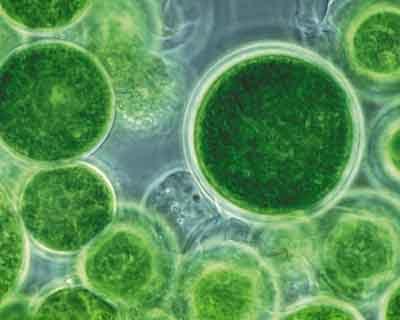- Home
- Editorial
- News
- Practice Guidelines
- Anesthesiology Guidelines
- Cancer Guidelines
- Cardiac Sciences Guidelines
- Critical Care Guidelines
- Dentistry Guidelines
- Dermatology Guidelines
- Diabetes and Endo Guidelines
- Diagnostics Guidelines
- ENT Guidelines
- Featured Practice Guidelines
- Gastroenterology Guidelines
- Geriatrics Guidelines
- Medicine Guidelines
- Nephrology Guidelines
- Neurosciences Guidelines
- Obs and Gynae Guidelines
- Ophthalmology Guidelines
- Orthopaedics Guidelines
- Paediatrics Guidelines
- Psychiatry Guidelines
- Pulmonology Guidelines
- Radiology Guidelines
- Surgery Guidelines
- Urology Guidelines
New algae capsule may reduce need of limb amputation by restoring blood flow

New algae capsule may reduce need of limb amputation by restoring blood flow.
A new algae-based treatment could reduce the need for amputation in people with critical limb ischaemia. It may be able to increase blood flow in the limbs where tissue has been damaged. The new research has been published in the journal npj Regenerative Medicine.
CLI is a serious condition which occurs when the arteries in the limbs become blocked as a result of a build-up of fatty deposits, reducing blood flow to the hands and feet. Smoking, diabetes, obesity and high blood pressure can all lead to CLI.
Currently, to treat CLI and restore blood flow in the limbs, the blocked section of the artery has to be either bypassed during surgery or widened using a small piece of expandable mesh called a stent. However, in up to a third of patients, these methods will eventually fail or are not possible to begin with and amputation is the only option.
Researchers at St Thomas' Hospital and King's College London have made small capsules from brown algae which hold macrophages, a type of white blood cell. Tests in mice have shown that these algae capsules may be able to increase blood flow in the limbs where tissue has been damaged. The researchers now hope to progress this research into human clinical trials to help the people visiting hospital with critical limb ischaemia (CLI).
Scientists have been experimenting with cells as a treatment to grow arteries in the leg for years, however, these treatments have not been effective in humans. A big challenge is that many of the cells injected into the injured area die, move away to surrounding areas, or are detected as 'foreign' by the immune system and rejected.
In this study, surgeon Professor Bijan Modarai and his team of scientists delivered the new algae-based capsules containing macrophages to areas of injured muscle tissue in the back legs of mice. Alginate from the cell walls of brown algae, which is mainly found in cold waters in the Northern Hemisphere, was used to form the capsules. They found that these macrophages successfully remained in the injured area, new blood vessels formed, and as a result more blood reached the damaged area.
Professor Bijan Modarai therefore hopes that this new way of delivering cells could be the key to creating an effective treatment for people suffering with CLI.
Professor Bijan Modarai, Professor of Vascular Surgery and BHF Senior Fellow at King's College London/St Thomas' Hospital, said:
"We hope that this new method of cell therapy will greatly reduce the need for limb amputations in those people whose CLI is untreatable, and would otherwise have no other option.
The beauty of this new algae-based treatment is that it harnesses the potential of natural materials. Not only does this make it a very attractive solution, but we know we can use it to safely treat people with CLI."
Professor Metin Avkiran, Associate Medical Director at the British Heart Foundation which funded the research said:
"You might associate algae with your garden pond, but our researchers are proving these diverse organisms could hold the key to a new treatment for one of the leading causes of limb amputation - CLI.
"Losing a limb is an all too devastating reality for many patients with CLI. The condition is caused by blockages in arteries that supply blood to the legs and feet, and is triggered by the same process that blocks coronary arteries when someone has a heart attack.
"This research brings us a step closer to finding treatments for the thousands of people affected by this disabling condition in the UK."
blood flowcapsuleCLIcritical limb ischaemiajournal npj Regenerative Medicinelimbneednewreducerestoringtreatment
Next Story
NO DATA FOUND

Disclaimer: This site is primarily intended for healthcare professionals. Any content/information on this website does not replace the advice of medical and/or health professionals and should not be construed as medical/diagnostic advice/endorsement or prescription. Use of this site is subject to our terms of use, privacy policy, advertisement policy. © 2020 Minerva Medical Treatment Pvt Ltd